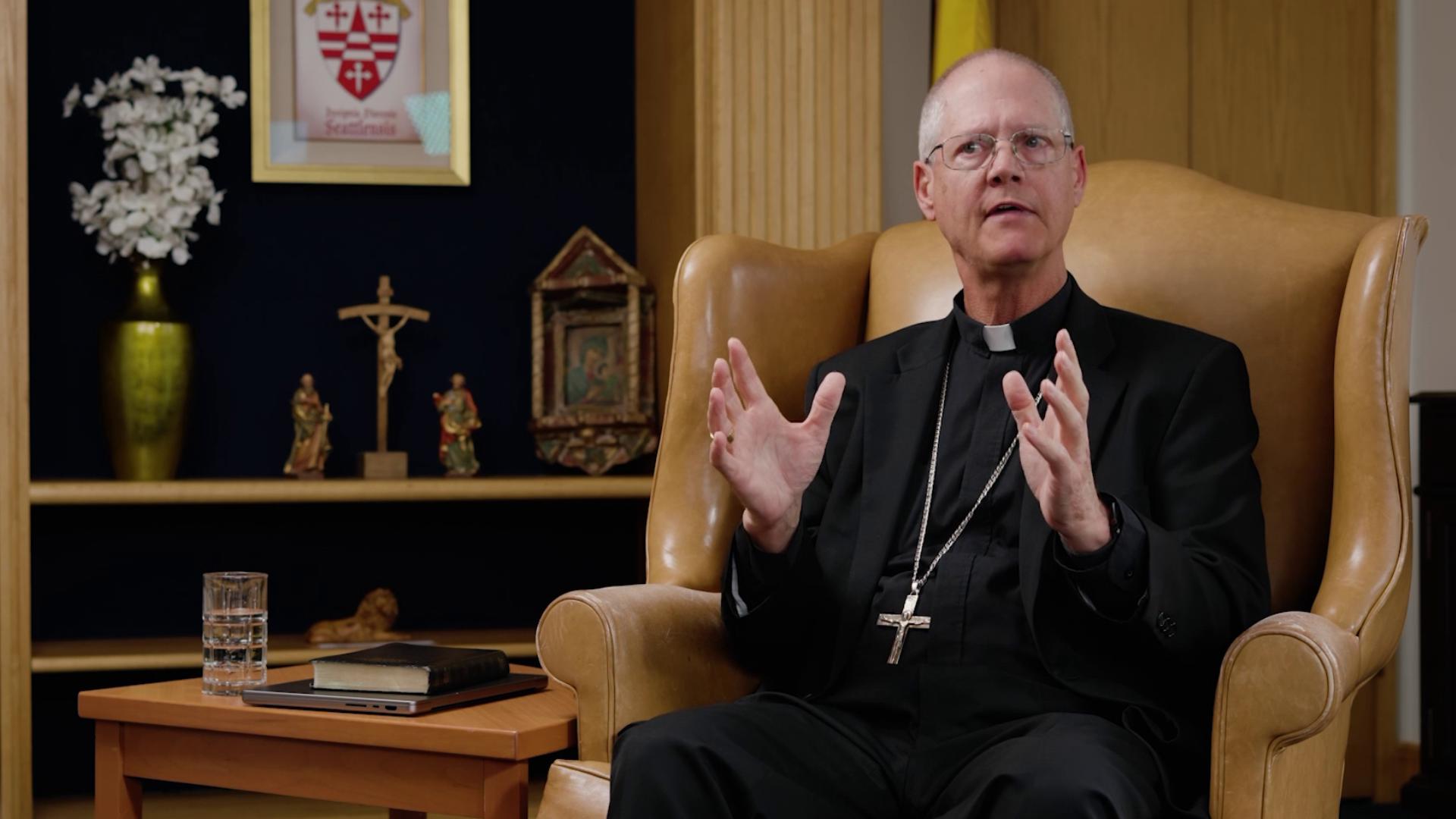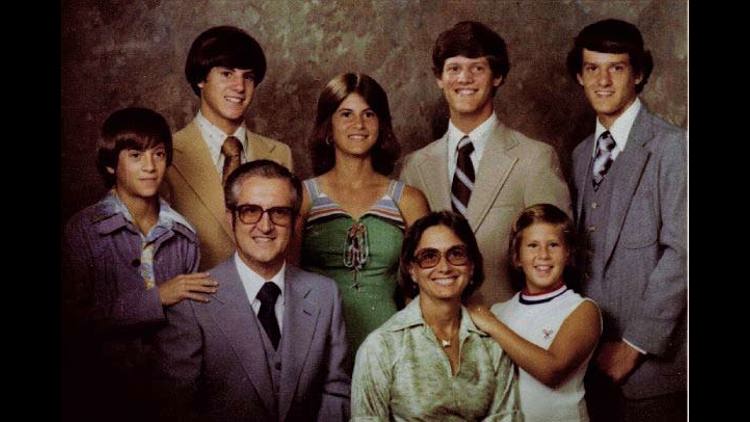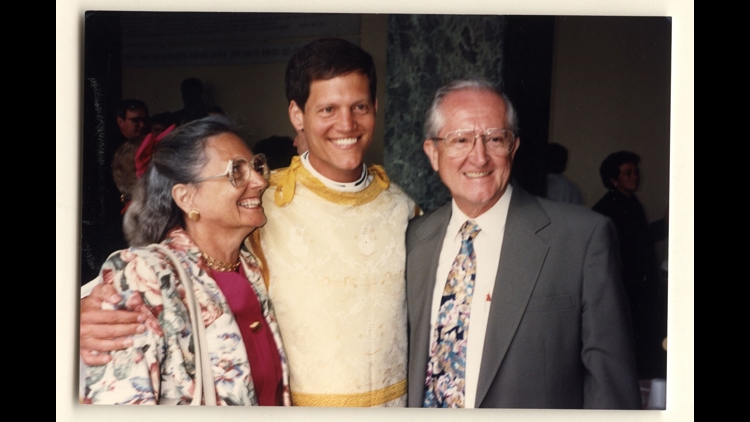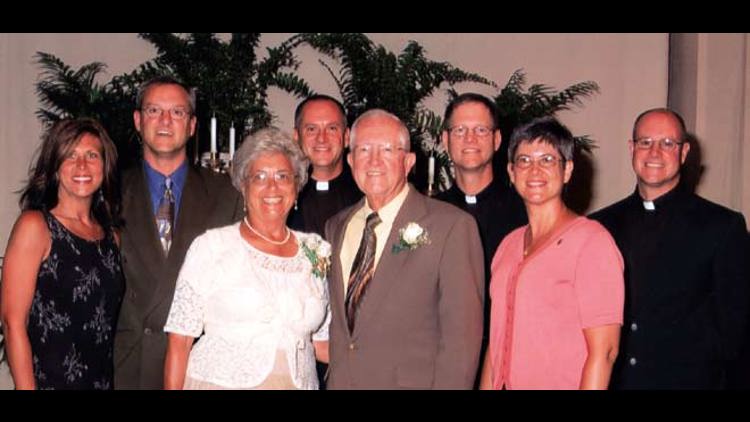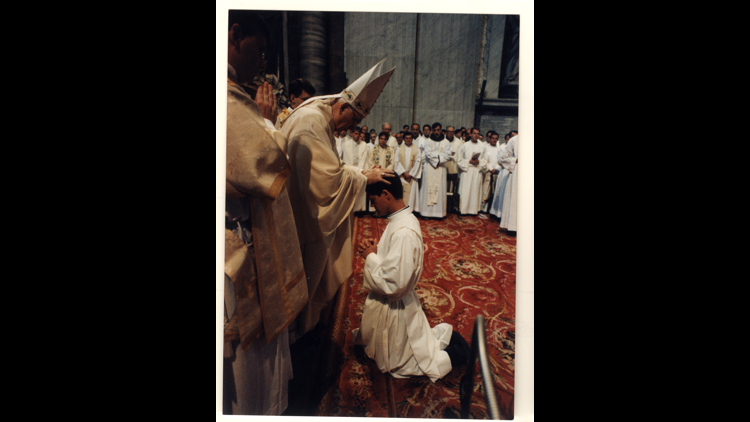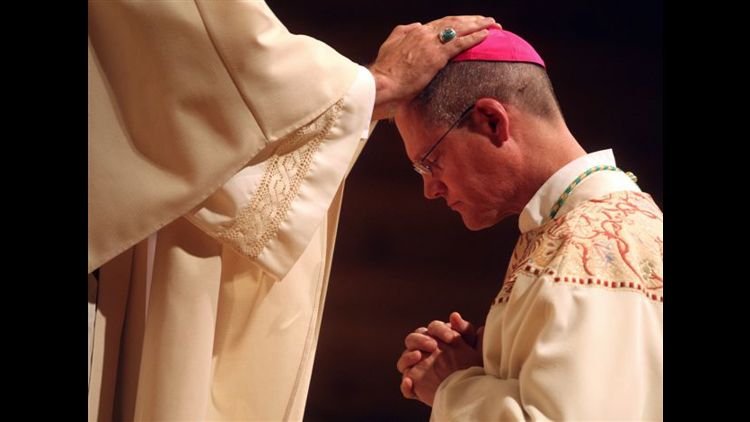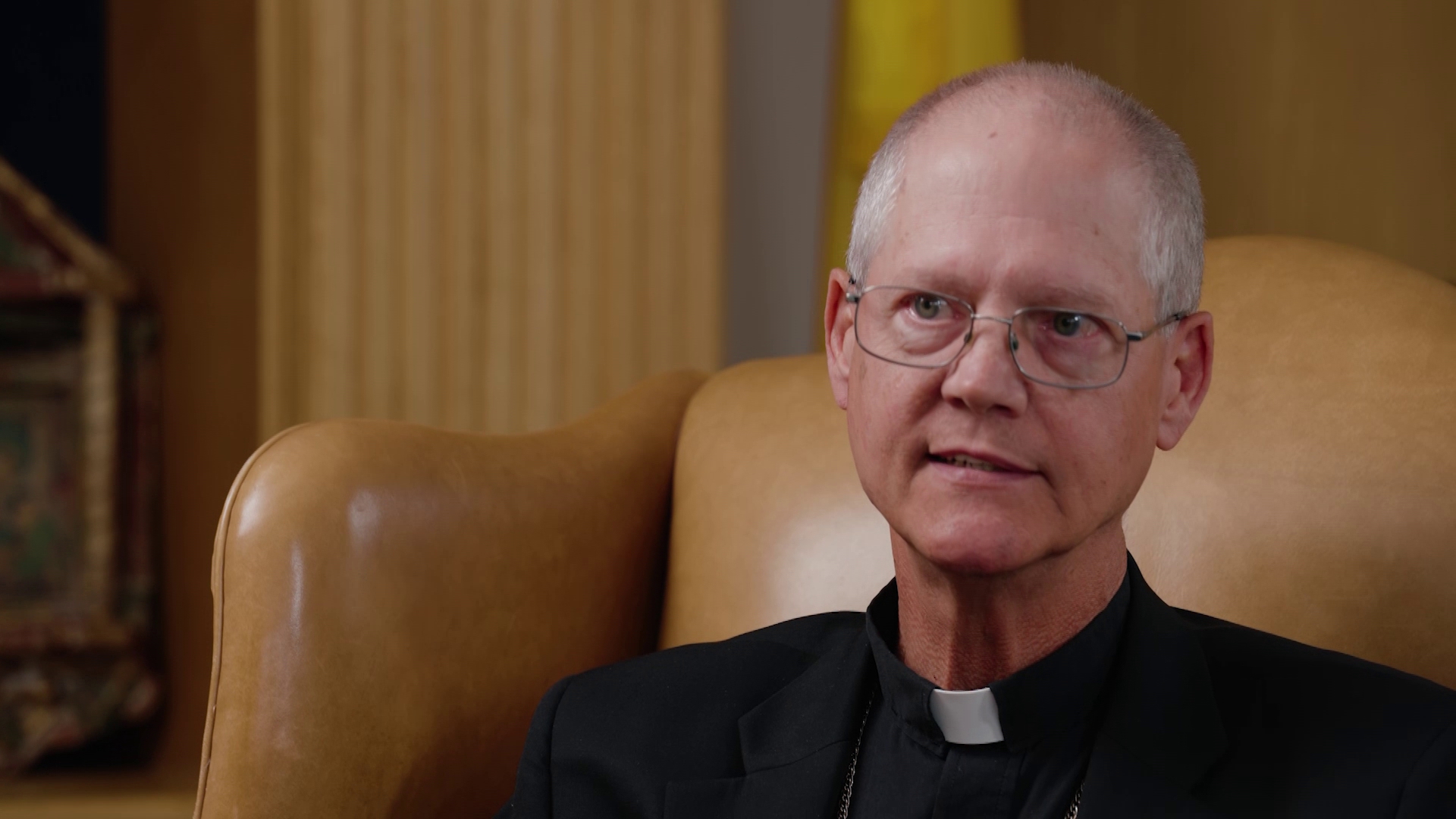SEATTLE — The archbishop of Seattle, Paul Etienne, has worked with the new pope and says the key in how Pope Leo XIV will lead is in the name he chose.
"What Pope Leo is now signaling by the choice of his name is that the church’s social doctrine is going to be a key component of this pontificate, and it also signals that much of the vision and many of the priorities of Francis will be continued in some fashion," Etienne said.
So, what does this historic moment mean for Catholicism around the world and at home? Archbishop Etienne sat down with KING 5’s Joyce Taylor earlier this week for his first in-depth television interview in six years.
He went on the record to talk about faith, the challenges ahead and the church’s mission to bring people together.
Editor’s note: This conversation has been edited for length and clarity.
Taylor: How do you see the election of a new pope shaping the direction of the Catholic Church globally?
Etienne: We know we want a man of prayer, a man of holiness, a man of the capacity to be in this world stage and to have a credible moral voice, to represent the teachings of Christ, to defend those teachings, and to represent the gospel and help that gospel to be lived in the world.
Taylor: And for his progressive reforms, do you expect the next pope will carry on those ideals?
Etienne: Pope Francis, who is known as the pope of surprises, this will be one of his last surprises.
He really stretched our imaginations and yes, comfort zones, of how we are called to live our faith in the world today.
Taylor: I would imagine, especially at a time when politically things are so polarized, and communities are so divided, do you feel that that's a factor in drawing people in?
Etienne: There was a quote from Pope John Paul II that said affective collegiality leads to effective collegiality, which basically means you've got to build basic human relationships before you have the difficult conversations to resolve your differences.
Our world needs to recover this willingness to respect one another as a brother and sister with equal dignity, and that we can have meaningful conversations about things we disagree with that can lead to very good solutions.
Photos: Paul Etienne's family and ordination
Taylor: I want to talk about the new law that's on the books in Washington state. It's going to require clergy, even in confession, to report child neglect and abuse. And I know you've condemned this.
Etienne: The church is already doing everything we can and have been for the past several decades to respond to victim survivors when they come to us to create safe environments to report to law enforcement.
We've had policies on our books for decades requiring our priests to report abuse when they come to knowledge of it, except within the seal of the sacrament of confession.
Taylor: Historically, the church has struggled with this issue of child sex abuse. Tens of thousands of children reportedly have been abused within the Catholic Church. How and why should people trust that the Church will act to defend against the abuse of children?
Etienne: I'm glad you used the word historically, because this is a historical moment in the life of the church for which we are ashamed. I mean, they weren't just sins, they were crimes committed against young people, and we can't apologize for that enough as and we have apologized.
But I think to answer the question, we now have decades of hard work in place and in this Archdiocese of Seattle, going back to the mid-1980s even before the church and the world knew what a real problem we had brewing back primarily in the ‘60s and the ‘70s and the ‘80s.
We can point to specific improvements that have been made in recent decades.
I would go so far as to say that our youth, our institutions, are some of the safest places for young people in our society today.
Taylor: What is it that you were advising other priests?
Etienne: We want our people to continue to have trust and confidence in the sacrament of reconciliation, better known as confession, that they can trust that when they come to receive the sacrament, that that's going to be a confidential communication.
And our church law, Canon Law, also says that if a priest violates that seal, he's automatically excommunicated from the church. And so, yeah, our priests have told me, Archbishop, I'll go to prison before I allow the state to coerce any such information from me, and I think all of our priests feel that way.
Taylor: What do you think the church is doing right or could be doing more of to welcome and minister to the LGBTQ+ community?
Etienne: I think there's sensitivities that we don't want to use labels. We just want people to know you're welcome because you're a child of God.
Taylor: What role do you see looking ahead for women? What do you envision for women in church leadership or in the ministry?
Etienne: We need more women engaged in the ministries of the church. We need more women engaged in the decision making of the church and the governance of the church, and we seek to do that in a way that doesn't diminish the role of the hierarchy but elevates the role of the baptized.
Taylor: In our lifetime, will we see a female become a priest in the Catholic Church?
Etienne: I doubt it just with where the stage of conversation is around the ordination of women as deacons and the level of internal conversation that that's created and resistance.
Taylor: What is your message to young people?
Etienne: I think our young people are looking for meaning.
We are here to bring the life of the risen Christ into the world. We are here to share the gospel that he came into the world, to live and to preach, and those that are willing to have that conversation with us, to allow us to bring that light of Christ into their world and into whatever darkness they're walking in. That's why we're here, and we welcome them with open arms.

